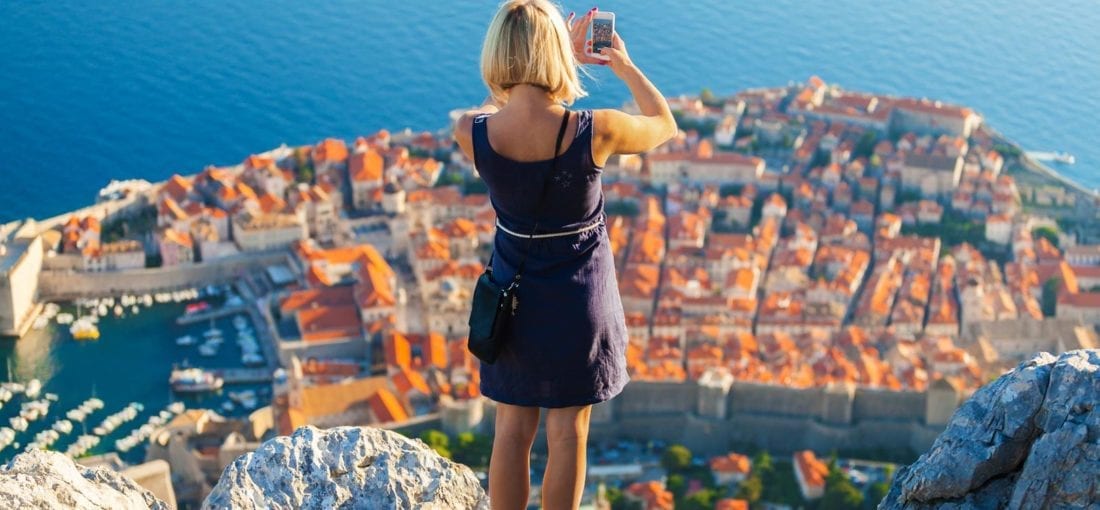
In the rush of today’s chaotic lifestyle, millennials are looking to explore the unknown. With the growing urgency to discover their identity through rich cultural experiences, the travel industry is increasingly witnessing robust growth. Travel experiences are no longer the same as it was before – it’s evolved to provide more customization to travelers, especially to those who scout for adventure travel. Millennials look out for transformational experiences and ask for it to be tailored to suit a specific interest, be it trail walking, bird watching or paragliding. They want travel agents to create memorable experiences that fits into their lifestyle, and the ‘one-size-fits-all’ approach is shunned and no longer demanded.
The dynamic changes witnessed by the travel industry with the boom of millennial travel has been phenomenal. Over the recent decade, millennials have paved the way for a shared economy and propelled business models for companies such as Airbnb. With more millennials adopting flexible work schedules, there has been a surge in telecommuting and working remotely, and the potential for travelling to a myriad locations while still working has increased. This new lifestyle has enabled businesses to shift their products and services to cater to their growing needs. Hotels are vying for partnerships with hostels to expand their line of offerings to include the ‘tripster’ guests. Travel agents have teamed up with firms to launch chains of budget-friendly hotels across top destinations frequented by millennials. Airlines aren’t far behind, either. In-flight packages and cabin crew attire have caught up with the act, regaling travelers with Netflix, polo shirts and chinos.
Nearly half the growth clocked by the travel industry has been due to travel becoming more accessible, especially with the availability of online agents. Reports showed that over 70 percent of travelers book their trips through online travel agents, highlighting the rising prevalence of travel as a necessity. The online travel agents prove to be a key player in ensuring the millennial traveler stays connected and travels safe. Today, millennials bank on technology to manage the entire travel process – right from researching available options and online reviews, to mobile booking and social media check-ins to stay connected with family and friends when travelling. As a result, the travel business has greatly improved and is now a seamless and tech-friendly process that can be altered later to match up to innovative ideas and embrace the future of travel.
Millennials do not shy away from spending big on good deals, although they still seek options that generate value for the money spent. They are not averse to reaching out to social media for feedback, and checking out multiple options before settling for a deal that’s optimal – giving them good return for the money spent, while still earning travel and loyalty points.
Places like Genting Highlands in Malaysia, Jeju Island in Korea, El Nido in Philippines, and a few others are often frequented by millennials who wish to discover something more than the regular touristy destinations. These hotspots are especially popular with South-East Asian travelers, particularly Indians. Indians are now looking for places that offer better work-life balance and Malaysia’s visa programs makes logistics easier and simpler. Many travelers rely on travel agents to process Malaysia visas for Indians. Estimates showed that a whopping 6 lakh Indians visited Malaysia last year, and travel agencies expect the number to rise by around 30 percent this year.
What’s interesting is that over the next decade, the emerging sharing economy is expected to get more mobile. Airlines could soon become homes in the sky, and today’s travel agent could be redefined through artificial intelligence. The idea of travel is set to take an interesting turn, backed by the mobility that comes with millennial travel. Data reveals that the travel space will rake in close to USD 17.3 billion over the next two years, up from about USD 15 billion garnered three years ago.
Driven by technology, millennial travelers value the experiences gathered from interesting, atypical places and seek to replace most material choices with something more qualitative and fulfilling. Most millennials consider it to be invigorating and pitches travel to be a higher financial priority when compared to saving up for a home or a mortgage deposit, or paying off debt. This trend has led to multiple startups and ventures mushrooming across the globe, creating newer avenues for the travel industry. Right from cruises for 20-somethings to airlines aimed at millennials, today’s millennial traveler is changing the face of the travel space, and more so, the way we all travel.
